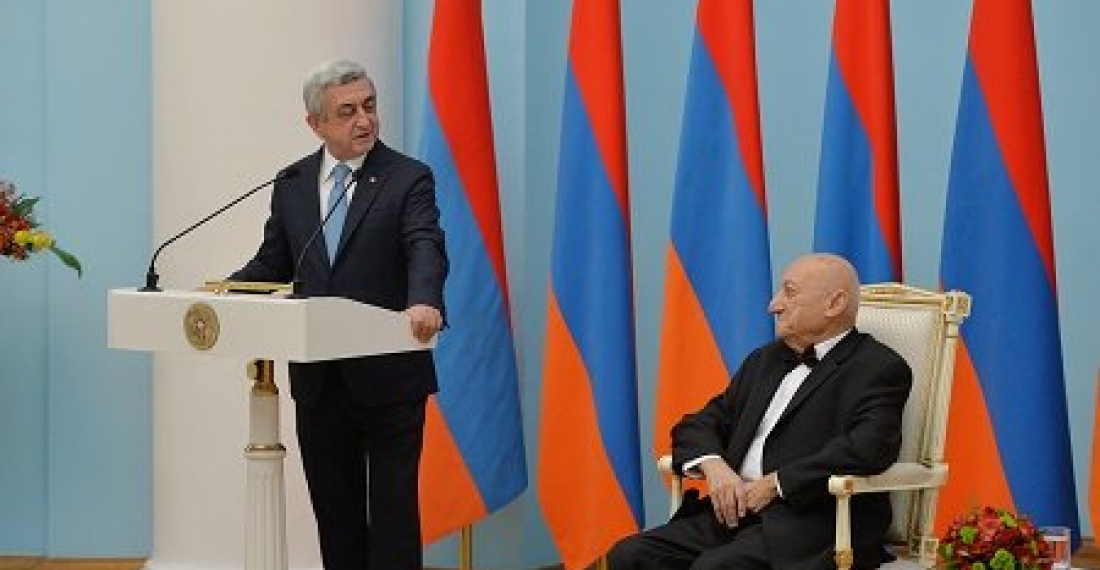Armenian President Serzh Sargsyan has given an indication of the sort of person he sees as his successor when his term of office expires in three months time. Under the changes in the Armenian constitution, adopted last year, Armenia will become a parliamentary republic in April 2018, and most executive power will move from the President to the prime minister.
President Sargsyan said that "the next president should know foreign languages, have broad connections in both Diaspora and Armenia, enjoy high reputation, and what is most important, be an impartial individual who has never been in politics and has never been a member of any political party".
Armenian President Serzh Sargsyan was speaking with a group of Armenian intellectuals following a ceremony to award "Order of Homeland" to National Hero of Armenia Hovhannes Chekijyan. President Sargsyan had a meeting with some of the intellectuals that attended the ceremony around a tea table, the press service of the Armenian President's Office reported.
At the beginning of the meeting noting that during the past years he periodically held meetings with intellectuals, President Serzh Sargsyan once again underlined the role and the mission of the intellectuals in the life of the country and offered to have an open and sincere discussion about Armenia and its future, particularly, under the light of the new governance system as a result of the Constitutional changes. Serzh Sargsyan expected to hear the positions, suggestions, as well as concerns and assessments of the intellectuals on the reality in the country.
source: commonspace.eu
photo: President Serzh Sargsyan of Armenia presiding over an award presentation ceremony in Yerevan on 16 January 2018 ([picture courtesy of the press service of the president of Armenia






